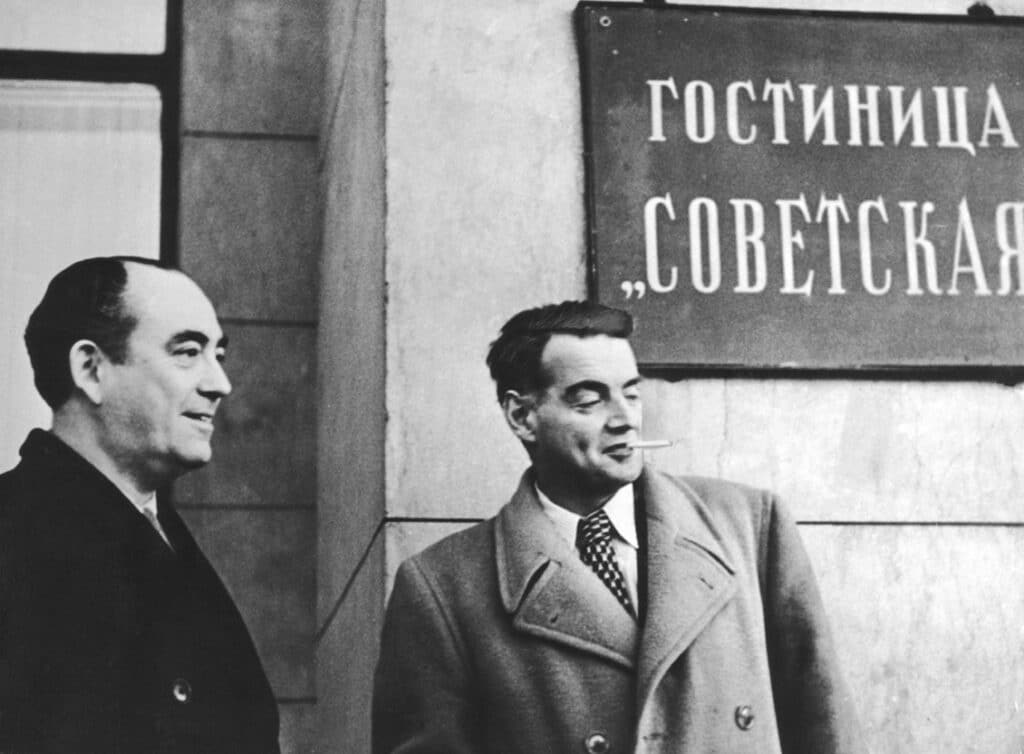
The Information Research Department (IRD) was a propaganda department of the UK’s Foreign Office from 1948 to 1977. The IRD is one of the UK’s best-kept counterintelligence secrets. Whilst documents are usually declassified after 30 years, the IRD still has files withheld from public knowledge. However, several documents were declassified by the Foreign Office in 2019. These have provided new insights into how this highly secretive department worked to create anti-communist propaganda throughout the Cold War.
The Information Research Department: So What?
At the height of its operations, the IRD had between 300 and 600 officers, and a budget of £1.5 million in the early 1960s. The IRD was regularly feeding reports to the BBC and other national and international agencies. The declassification of highly sensitive documents pertaining to the IRD’s operations provides a new opportunity to understand in detail the IRD’s function and impact on anti-communist rhetoric during the Cold War.
The Information Research Department: Background
The Foreign Office founded the IRD in 1948 as an answer to Soviet propaganda in the west. The Foreign Office assessed that ministerial speeches about the Communist threat were insufficient to counter the immense capabilities of Soviet Russia. Therefore, the Fo founded the IRD as a subsidiary department of the Foreign Office, to become an integral part of Britain’s Cold War effort.
In 1948 and 1949, the IRD had 50 officers working with limited capacity. At this time, the IRD focused on factual publications regarding the reality of living under the Soviet Union. Whilst starting out with a relatively small team of personnel and a limited budget, the IRD quickly developed a workable system of contacts. The Foreign Office and UK government saw this as scalable. They saw a potentially highly effective, system of counterintelligence. The resources allocated to the IRD increased steadily throughout the 1950s and 1960s.
IRD Operations
Throughout the Cold War, the nature of the department shifted significantly. The IRD mainly worked by distributing reports to foreign media outlets through trusted contacts. Oftentimes this would be reports based on sanitised intelligence, but the IRD also produced falsified and unattributable documents. More recent evidence of documents declassified in 2019 reveal that the IRD was also responsible for ‘special political action’, including bribery, propaganda, and covert political funding.
The memorandum by the Foreign Office dated 31st of May 1949, reveals the true nature of the work that IRD undertook:
“The most effective technique for overt propaganda work overseas is to get the ideas and information you desire carried for you by the local newspapers. Key men in carious walks of life, local broadcasts etc., without any sign that the ideas and information emanate from British official sources. Since, as I have stated above, we are under instructions that it should not be generally known that H.M. Government are carrying on anti-Communist propaganda, we are confined to this technique.”
Most of the intelligence disseminated by the IRD were exaggerations rather than complete falsehoods. By the time of its closure in 1977, the IRD had a list of over 100 journalists in almost every national newspaper, that knowingly or unknowingly used the propaganda that the IRD produced. It also had an unknown number of private clients, creating a two-tier system of state and non-state actors, which allowed the scope of the IRD to grow whilst maintaining confidentiality.
IRD and BBC
The IRD worked with the BBC and other government departments to assist with the collection and dissemination of anti-communist information. However, it also had significant contacts and clientele overseas. The machinery abroad consisted of information staff in almost all British embassies.
Provenance and Closure
Interestingly, Moscow was aware of the functions of the IRD from its very beginnings. One of the first agents to work for the IRD was Guy Burgess of the Cambridge Spy Ring. Burgess was fired from his post after only two months of work for being ‘dirty, drunk, and idle,’ however, at that point, he had collected enough information on the IRD’s operations to take to Soviet forces.
It was not Soviet discovery that was the downfall of the IRD. In 1977, it was the Labour Foreign Secretary David Owen who closed the Information Research Department. He argued that the covert methods of the IRD were “out of step with the times,”. He also argued that the nature of the covert activities was not in line with modern British political beliefs. As a result, the IRD’s activities ended. Any remaining work passed over to MI6 and other relevant departments of the Foreign Office.
Conclusions
Little is known in the public domain about the overall scale and impact of the IRD. This is mainly due to the covert nature of its operations. Probably, considering the size of the department and its resources, the IRD changed the course of the Cold War.

